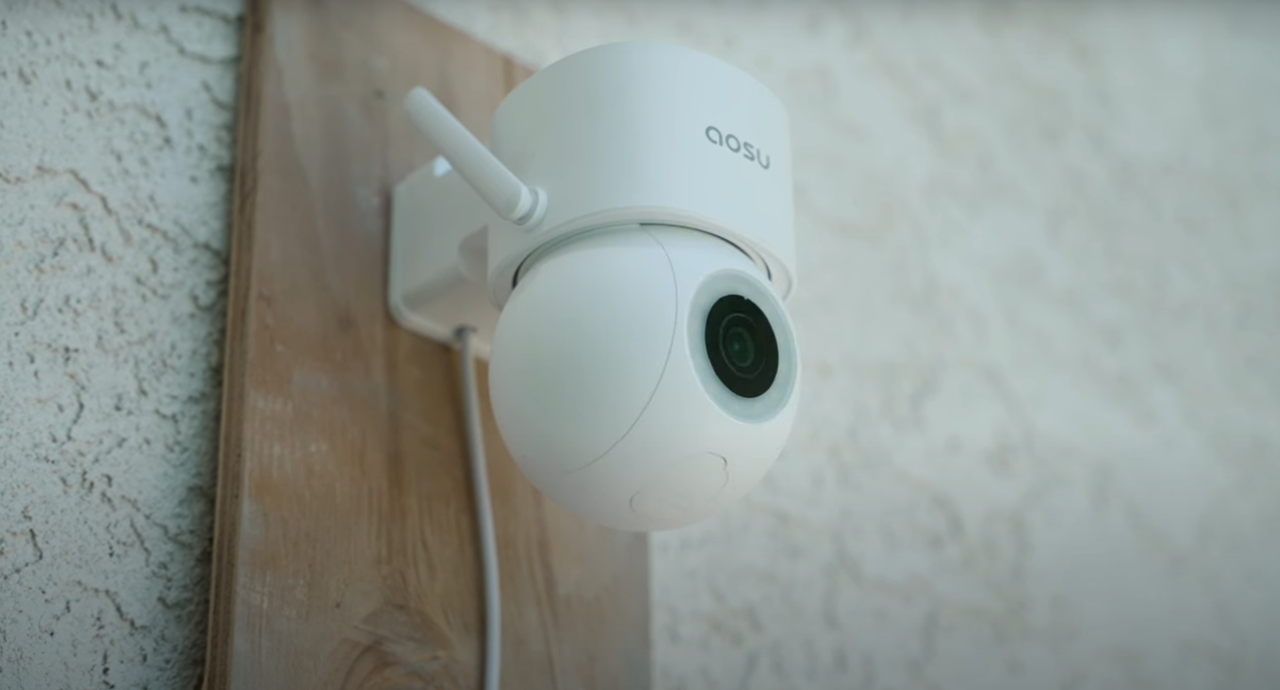Few things are more annoying than coming home to find a stranger’s car planted right in front of your house—again. It blocks your view, makes pulling in and out harder, and can even feel like someone is claiming your space. Naturally you wonder how to stop someone parking in front of your house without sparking a neighborhood feud or crossing legal lines.
The good news is you have options, and most of them are both simple and lawful. In the sections that follow you’ll see how polite conversation can solve many cases, when to involve local authorities, what to do if the parking is legal yet still disruptive, and how inexpensive tools—up to and including outdoor cameras—can help you protect your curb. Whether the situation calls for a quick chat or a formal complaint, you’ll find a step-by-step approach that fits.
1.Start with Direct and Calm Communication
Before involving city officials or looking into legal action, the best place to start is often the simplest—talking. Many parking problems can be resolved just by letting the other person know it's an issue. Drivers aren't always aware that they're causing inconvenience, and a respectful conversation is often all it takes to fix the problem without drama.
1.1 Speak to the Driver First
If you see the person parking or returning to their car, take a moment to approach them calmly. Let them know that having a car parked directly outside your home is causing issues—whether it's blocking your view, making it hard to get deliveries, or just becoming a daily nuisance.
You don’t have to be confrontational. A simple, polite message like: “Hi, I live here and it's been tough getting in and out when cars are parked right outside. Would you mind using a different spot if that’s okay?” is often enough. Most people will understand and adjust their behavior.
1.2 Leave a Friendly Note on the Windshield
If you don’t catch the driver in person, leaving a written note is a good fallback. Keep it respectful and brief—no sarcasm, no threats. The goal is to make them think, not react.
Here’s a sample note you can use:
“Hi there, I live at this house and it’s hard to pull in and out when this space is blocked. If you could avoid parking here next time, I’d really appreciate it. Thanks for your understanding.”
This small effort often goes a long way in resolving the issue without creating unnecessary tension.
2.Report Illegal Parking to Local Authorities
Sometimes the problem isn’t just inconvenient—it’s illegal. If someone is parking in front of your house in a way that violates local traffic laws, you may have a strong case to take formal action. But before calling anyone, it’s important to know exactly what counts as illegal and what steps you need to follow.
2.1 Contact Local Authorities
Most cities have clear rules about where people can and can’t park. If a car is blocking your driveway, parked too close to a fire hydrant, sitting in a bus zone, or ignoring “no parking” signs, you can and should report it.
Start by documenting the situation. Use your phone to take a photo that shows:
• The car’s license plate
• Its exact position (especially if it’s near a fire hydrant or driveway)
• Nearby street signs that show restricted parking
Then contact your city’s parking enforcement office or non-emergency police line. Give them the details and location, and ask if they can send an officer to assess the situation. Many departments also allow online or app-based reporting, which can be faster and easier.
2.2 Ask About Towing Options
If the problem happens repeatedly and the car is clearly violating the law, some cities will authorize a tow—especially if the vehicle is blocking your driveway. Be aware that towing is often handled by private companies under city contracts, so the process can vary.
Call your local parking enforcement office and ask what your rights are in this case. Some areas allow property owners to request a tow under certain conditions, but others require a citation to be issued first. Also, consider whether the issue is severe enough to warrant this action, as towing can lead to tension with neighbors and may carry administrative steps or costs.
Knowing your rights—and following proper procedure—can help resolve the issue without making the situation worse.
3.Manage Annoying but Legal Parking Near Your Home
Not every frustrating situation involves someone breaking the law. In fact, in most neighborhoods, the curb in front of your house is public property—even if it feels like it should be yours. That means other drivers technically have the right to park there. Still, that doesn’t mean you’re out of options. If the same car is constantly outside your home and it’s creating a nuisance, there are steps you can take.
3.1 Talk to Your City or Council
Even though the street is public, you can request official changes to how parking is managed. Many cities allow residents to apply for signs like “No Parking,” “Resident Parking Only,” or “Limited Time Parking” under certain conditions.
Start by contacting your local traffic or public works department. Explain the situation, and ask what kinds of restrictions are available in your area. In some cases, they may send someone to inspect the site or ask you to collect signatures from nearby neighbors before making a decision.
Getting a sign installed won’t happen overnight, but if parking is a recurring issue for your block, it’s a good long-term solution.
3.2 Explore Permit or Paid Parking Programs
Some cities have programs that limit street parking to local residents or require drivers to pay for extended stays. If your area is busy during the day—perhaps near schools, offices, or a transit stop—this can discourage non-residents from parking in front of your home all day.
Check if your city already has a residential permit parking program. If not, you and your neighbors can work together to propose one. The more people affected, the stronger your case will be. This kind of community action is often what pushes local councils to take action.
3.3 Involve Your Homeowners Association (HOA)
If you live in a neighborhood with a homeowners association, they may already have rules about where people can and can't park. Some HOAs manage curb space, set time limits, or issue warnings for repeat offenses.
Bring up the issue in your next HOA meeting, or contact your board directly. They might be able to install markings or signs, remind residents of existing rules, or even fine repeat offenders if your community guidelines allow for it.
It’s a good idea to review your HOA’s bylaws or community handbook before taking further steps, so you know exactly what’s permitted.
4.Use Outdoor Cameras to Deter and Record
One of the most effective ways to deal with unwanted parking is to let drivers know they’re being watched. A visible outdoor camera not only discourages repeated offenders—it also gives you reliable footage in case you need to report or prove the behavior. Here are three smart outdoor cameras from aosu that can help you monitor and protect the space in front of your house:
SolarCam D1 Max
• Covers wide driveways and curb areas with a 166° field of view
• Records in high-resolution 2K, day and night—great for license plate clarity
• Sends instant alerts when a vehicle or person is detected near your property
SolarCam D1 Classic
• Easy to install and solar-powered, no need for complex wiring
• Ideal for keeping eyes on parked cars throughout the day
• Motion-activated recording helps document repeat violations over time
SolarCam P1 Max
• 360° pan and tilt lets you track cars from curb to driveway remotely
• Two-way audio feature can be used to issue a polite voice reminder
• Great for larger properties or corner lots with multiple access points
5.Other Tactics to Try (With Caution)
If polite requests and formal channels aren’t working—or if the problem isn’t serious enough to involve city officials—some homeowners try small, informal tactics to keep the space in front of their house clear. These methods don’t always guarantee results, but in certain situations, they might help send a message.
4.1 Use Cones or Visual Cues
Some people place traffic cones, folding barricades, or even garbage bins on the curb as a way to “reserve” the spot. It can work in the short term, especially if people assume the area is off-limits.
But here’s the catch: if the street is public property, you have no legal right to block access. Others are free to move or ignore your cones. In some areas, placing objects on the road may even violate local ordinances. So use this approach only as a gentle deterrent—not as something you rely on.
4.2 Park Your Own Car Outside
It may sound obvious, but one of the most reliable ways to stop others from taking the space is to use it yourself. Parking your own vehicle in front of your house is completely legal and instantly prevents someone else from using it.
This method works best if you have multiple cars or don’t mind leaving one parked outside. It’s not ideal for households with limited vehicles or if you need quick access to the curb for deliveries or guests. But when used strategically—say, overnight or during busy hours—it can be a simple, no-conflict solution.
Know Your Rights on Street Parking
When someone parks outside your house repeatedly, it’s easy to feel like your space is being taken. But before taking any serious steps, it’s important to understand where the legal lines are—and how to protect your interests without overstepping your rights.
1. Public vs. Private Space
Most residential streets are considered public property, which means anyone can legally park along the curb, even if it's right in front of your home. You generally can’t claim that space as yours or put up signs to reserve it—unless the city has officially given you that right.
However, you do have the right to keep your driveway accessible. If a car is blocking your driveway, even partially, it may be in violation of local parking laws. You also have a right to a safe and clear line of sight when entering or exiting your property. These are the areas where you can take action, supported by city rules.
2. Be Patient and Consistent
Parking issues can take time to resolve—especially when the person doing it isn’t technically breaking the law. You might need to repeat your requests, document patterns, or escalate through official channels.
What helps? Keeping a record of the problem. Take note of dates, times, and even photos if the issue is persistent. If you eventually need to contact your city, HOA, or a legal advisor, having a clear log of what’s happened strengthens your case.
3. Consider Legal Help if It Escalates
Most situations can be handled with conversation and basic reporting. But if the issue escalates—for example, if someone refuses to move for days, leaves threatening notes, or the situation turns hostile—it may be time to talk to a local attorney or a neighborhood dispute mediator.
Some cities offer free or low-cost community mediation programs. These can help resolve disputes without going to court, especially in cases where you're dealing with a neighbor and want to preserve peace on your block.
Conclusion
Stopping someone from parking in front of your house isn’t about winning a turf war—it’s about setting boundaries with clarity and patience. Instead of jumping into confrontation or taking matters into your own hands, start with polite communication, know what your local laws allow, and keep records when necessary.
When used together, calm conversation, proper reporting, and simple deterrents like outdoor cameras create a long-term solution that works. A well-placed aosu security camera doesn’t just help you gather evidence—it shows that you're watching, and that your space matters. And when your curb is respected, your home feels truly yours again.



























Zostaw komentarz
Ta strona jest chroniona przez hCaptcha i obowiązują na niej Polityka prywatności i Warunki korzystania z usługi serwisu hCaptcha.